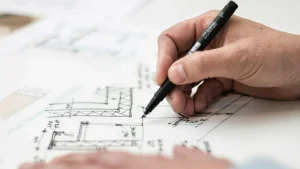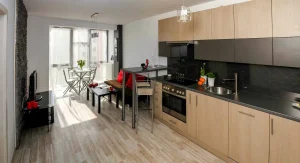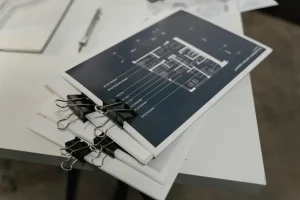
Best tips for flat hunting and understanding rental contracts
Let me be painfully honest. My first flat hunt was a catastrophe. I was so mesmerized by a flat with a cute little balcony that I completely missed the faint smell of damp and the single-glazed windows that rattled with every gust of wind. That winter was cold, expensive, and a lesson learned the hard way. It’s a jungle out there. And if you’re not prepared, you’ll get eaten alive by hidden fees and dodgy clauses. That’s precisely why having the very best tips for flat hunting and understanding rental contracts is not just helpful, it’s absolutely essential for your sanity and your bank balance.
This isn’t just about finding a place with four walls and a roof. It’s about finding a home where you can feel secure, and that security starts with knowledge. We are going to break it all down, from the initial search to the moment you get your keys, and even what to do when things go wrong. This guide is designed to empower you.
Starting Your Flat Hunt: Essential Preparation and Planning
Before you even type “flats to rent” into a search engine, stop. Take a breath. The most critical work happens before the search even begins. Rushing in unprepared is how mistakes are made. Proper planning is the first, and maybe most important, step in the entire process.
Defining Your Ideal Rental Home and Budget
First, get brutally honest with yourself about what you need versus what you want. A second bedroom is a want; a home that doesn’t have black mould is a need. Make two lists. Your non-negotiables might include location, a certain number of bedrooms, or a pet-friendly policy. Then, list your nice-to-haves, like a dishwasher or outdoor space. This clarity will save you from wasting time on unsuitable properties. Budgeting is more than just the monthly rent. You need to factor in council tax, utilities (gas, electric, water), internet, and contents insurance. A good rule of thumb is that your rent shouldn’t exceed 30-40% of your take-home pay. This is solid tips for first time renters advice.
Organizing Necessary Documents for Applications
The rental market moves at the speed of light. Seriously. If you find a great place, you won’t be the only one interested. To give yourself a fighting chance, have your documents scanned and ready to go in a digital folder. This is how to find a rental apartment quickly. Landlords and letting agents will typically ask for photo ID (passport or driving licence), proof of employment and income (payslips, an employment contract), and references from previous landlords or your employer. Having this portfolio ready makes you look organised and serious.
Effective Strategies for Finding Your Next Flat
With your prep work done, it’s time to actually find the place. This phase requires a mix of digital savvy and old-fashioned observation. Relying on just one method can mean you miss out on the perfect spot. Having a multi-pronged approach is a key part of an effective strategy.
Navigating Online Listings and Local Resources
Of course, you’ll be using the best flat hunting apps and websites. They’re indispensable. But be smart about it. Set up alerts for your specific criteria so you’re notified the second a matching property is listed. But also, be wary. If a listing looks too good to be true, it probably is. This is crucial for how to avoid rental scams online. Never, ever send money before viewing a property and meeting someone in person. Beyond the big portals, look at local letting agents’ websites directly and even consider a walk around your desired neighbourhood—sometimes the best places are advertised with a simple sign in the window. Getting this step right can save a fortune.
Key Things to Observe During Flat Viewings
The viewing is your moment to be a detective. This is what to check when viewing a flat: run the taps to check the water pressure (trust me on this one), open and close all windows to check for drafts and secure locks, look for signs of damp or mould (check corners, behind furniture, inside wardrobes), and check your phone signal in every room. Ask to turn on the heating, regardless of the season. Does it work? Are the radiators getting warm? Notice the noise levels from both the street and the neighbours. I once lived below someone who practiced the bagpipes at 11 PM. Not fun.
Asking Crucial Questions Before You Decide
Don’t be shy during the viewing. This is your chance to get information you won’t find in the listing. Having a list of questions to ask landlord during flat viewing is a game-changer. Ask about the neighbours, the average cost of utility bills, what the council tax band is, and who is responsible for garden maintenance. A really important one: “Why did the previous tenant leave?” Their answer could be very revealing. Asking these questions is a core part of the process.
Decoding Rental Contracts: A Comprehensive Guide
You’ve found it. The One. Now comes the paperwork. The rental agreement is a legally binding document, and blindly signing it is a recipe for disaster. This is where understanding the fine print becomes your superpower. You need this knowledge now more than ever.
Understanding Common Clauses and Legal Jargon
Rental agreements are filled with legal jargon designed to be confusing. Let’s demystify it. You’ll likely encounter what is an assured shorthold tenancy agreement (AST), the most common type of tenancy. Pay close attention to the break clause (which allows you or the landlord to end the tenancy early) and any clauses about guests, pets, or making alterations to the property. These rental agreement clauses to watch out for can trip you up later if you don’t read them carefully. This deep dive into the paperwork is one of the most vital steps.
Rent, Deposits, and Fees Explained Clearly
Let’s talk money. The contract will state the monthly rent and the due date. It will also detail the security deposit. So, what is a security deposit in renting? It’s a sum held by the landlord to cover any potential damages you might cause. By law, this deposit must be protected in a government-backed tenancy deposit scheme (TDP). If your landlord doesn’t do this, they are breaking the law. Some people ask about negotiating rent before signing a contract. It’s sometimes possible, especially if the property has been on the market for a while, but don’t bank on it. Understanding these financial elements is a cornerstone of being a savvy renter.
Tenant and Landlord Responsibilities: What You Need to Know
The contract should clearly outline the tenant rights and responsibilities in a lease, as well as the landlord’s. Generally, you are responsible for day-to-day maintenance (like changing lightbulbs) and keeping the property clean. The landlord is responsible for structural repairs, ensuring the property is safe, and keeping things like the boiler and plumbing in working order. Knowing this split is crucial. Don’t let anyone tell you otherwise; these are your rights. Solidifying this knowledge is crucial.
Protecting Your Rights and Avoiding Rental Pitfalls
Signing the contract isn’t the final step. You need to remain vigilant to protect yourself and your deposit throughout your tenancy. This is about being proactive, not reactive. This proactive mindset should extend beyond day one.
The Importance of Inventory Checks and Condition Reports
This is so important I’ll say it twice: do not skip the inventory check. This report details the condition of the property and its contents when you move in. Go through it with a fine-tooth comb. Take your own date-stamped photos and videos of everything, especially existing damage like scratches on the floor or marks on the wall. Document it all and send a copy to the letting agent or landlord. This document is your primary evidence for how to get your rental deposit back in full when you leave.
Handling Repairs, Maintenance, and Disputes
When something breaks, report it to your landlord or letting agent in writing (an email creates a paper trail). If they fail to act on necessary repairs, you have rights. In serious disputes, you may need legal advice for rental contract disputes. Don’t be afraid to stand your ground, especially on issues affecting your health and safety. The law is often on your side if you’ve followed the correct procedures. This knowledge is your shield.
Navigating Lease Renewals and Termination Processes
As your initial term (often 6 or 12 months) comes to an end, your landlord may propose a renewal, possibly with a rent increase. If you want to leave, you must give proper notice as specified in your contract. Sometimes life happens, and you might wonder how to break a rental lease early. This can be complicated and potentially costly unless you have a break clause or the landlord agrees to it. This process requires a clear understanding of your contract.
Making Your Move: Final Checks and Settling In Tips
You did it. You navigated the search, the viewings, and the legal maze. You have the keys in your hand. But the process isn’t quite over. A few final steps will ensure a smooth transition into your new home. Part of the process is finishing strong.
On moving day, the very first thing you should do is take meter readings for gas, electricity, and water. Take a photo of the meters as proof. This prevents you from being charged for the previous tenant’s usage. Create a moving checklist for new rental property: inform the council of your move for council tax purposes, update your address with your bank and employer, and register to vote. And finally, change the locks. Kidding. Mostly. Once you’re in, you can finally relax. You’ve used this advice to secure not just a flat, but a home. Well done. It’s a tough process, but being armed with the right information makes all the difference. Now, go and enjoy that new home of yours. You’ve earned it.






